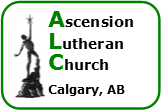Third Sunday After Pentecost
Galatians 5:1, 13-25
[1] For freedom Christ has set us free. Stand firm, therefore, and do not submit again to a yoke of slavery. [13] For you were called to freedom, brothers and sisters; only do not use your freedom as an opportunity for self-indulgence, but through love become slaves to one another. [14] For the whole law is summed up in a single commandment, “You shall love your neighbor as yourself.” [15] If, however, you bite and devour one another, take care that you are not consumed by one another. [16] Live by the Spirit, I say, and do not gratify the desires of the flesh. [17] For what the flesh desires is opposed to the Spirit, and what the Spirit desires is opposed to the flesh; for these are opposed to each other, to prevent you from doing what you want. [18] But if you are led by the Spirit, you are not subject to the law. [19] Now the works of the flesh are obvious: fornication, impurity, licentiousness, [20] idolatry, sorcery, enmities, strife, jealousy, anger, quarrels, dissensions, factions, [21] envy, drunkenness, carousing, and things like these. I am warning you, as I warned you before: those who do such things will not inherit the kingdom of God. [22] By contrast, the fruit of the Spirit is love, joy, peace, patience, kindness, generosity, faithfulness, [23] gentleness, and self-control. There is no law against such things. [24] And those who belong to Christ Jesus have crucified the flesh with its passions and desires. [25] If we live by the Spirit, let us also be guided by the Spirit.
In his letter to the Galatians, St. Paul focuses on the power of the gospel of Jesus Christ to set us free. Often, we think of freedom as strictly being freedom from something, but St. Paul explains that freedom has two aspects—freedom from and also freedom for. By his death, resurrection and ascension, Jesus freed his people from the power of sin and death—they are no longer caught up in those things St. Paul refers to as the ‘works of the flesh’, which serve only to entrap individuals and drain life from them until they are dead; physically, emotionally and spiritually.
But life in Christ is more than what Christians ‘don’t do’, but is about the lives they have been empowered to live—the things they have been freed to do. St. Paul refers to these as the fruit of the Spirit. Just as trees produce fruit simply by being what God created them to be, so too Christians produce this fruit of the Spirit, by living as God called and intended. The way they do this is to live lives guided by the Holy Spirit, trusting that the Spirit will give them the direction, opportunity and strength to produce these fruits of love, joy, peace patience, kindness, generosity, faithfulness, gentleness and self-control. One who is living in the freedom of Christ will exhibit these fruits in their life–and in some cases may not even be aware they are doing so.
Christ freed us from sin, death and the consequences of those works. At the same time He freed us for life and to use that life for the love of God and love of our neighbours. A simple way of seeing where our lives are being spent is to prayerfully reflect and look for evidence of the fruit of the Spirit in our words and deeds.
